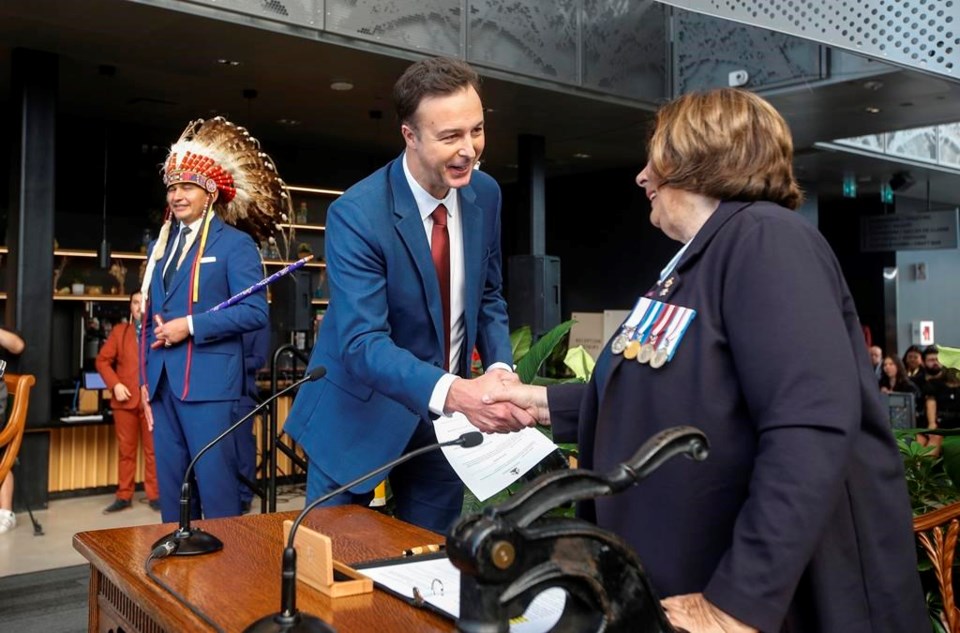WINNIPEG — Manitoba's NDP government said Wednesday it has found cost savings that will allow it to fulfil campaign promises while keeping the deficit from rising further.
Some $123 million is СŔ¶ĘÓƵ saved via a combination of measures in several departments, Finance Minister Adrien Sala said, including $16 million by reducing efforts to stockpile personal protective equipment in health care beyond what is needed.
Another $5.8 million will be saved this year because a plan to recruit nurses from the Philippines, announced by the former Progressive Conservative government, has been slow to take off.
"Very few people have come to Manitoba through this program," Premier Wab Kinew told reporters.
Another $25 million is to be saved by axing an Idea Fund brought in by the Tories that paid public-sector workers to come forward with suggestions to improve services, Sala said.
"Instead of paying civil servants to bring forward ideas, we're actually just going to do the work of engaging with them," Sala said.
The savings, combined with cuts to health-care administration announced earlier, are aimed at giving the government fiscal room to fulfil some campaign promises immediately. That includes a suspension of the fuel tax starting Jan. 1 and $31 million for initiatives this winter to address homelessness.
The government announced last week the projected deficit had ballooned to $1.6 billion — more than four times the original prediction in the spring budget. Much of it was due to forecast losses at Manitoba Hydro and new collective agreements for health-care workers.
The NDP, elected Oct. 3, has blamed the former Tory government, saying it did not set aside money for its commitments. The Tories have fired back and have accused the NDP of laying the ground for future tax increases.
Kinew said the government is still committed to its promised tax cuts, which includes income tax reductions next year, and to a plan to balance the budget in four years.
"I think it's important that, as part of a balanced approach where we invest in health care, we're balanced with the books, that we're also offering predictability," Kinew said.
"Because you have households who have made their financial decisions for the coming year, and we can't pull the rug out from underneath you."
The $1.6-billion deficit is the largest in the province's history, outside of the COVID-19 pandemic. That has led to calls in some quarters for the NDP to abandon its planned tax cuts.
Kevin Rebeck, president of the Manitoba Federation of Labour, said people want government services protected.
"They elected the NDP government to fix health care, to improve staffing levels, to restore services that had been cut under the last government," Rebeck said.
"And carrying on with tax cuts that mainly benefit the wealthy shouldn't be a priority."
The federation, along with other labour groups and the Canadian Centre for Policy Alternatives think tank, sent a letter to Kinew urging him to backtrack on his planned tax cuts.
"Any realistic path forward that honours your election commitments entails exploring means of shoring up revenue," the letter said.
This report by The Canadian Press was first published Dec. 13, 2023.
Steve Lambert, The Canadian Press




